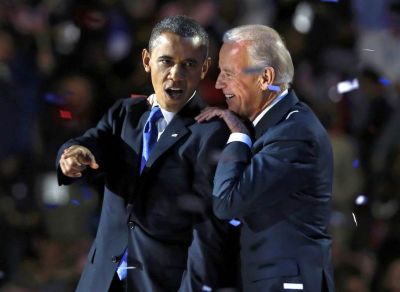6 Things to Know About the Shocking Allegations Concerning Obama, Hezbollah and Iran
2. Obama administration accused of putting up "roadblocks"

Politico, which spoke to a number of agents involved in Project Cassandra, reports that the administration of President Barack Obama, who entered office in 2009 with the promise of improving the U.S. relationship with Iran, "threw an increasingly insurmountable series of roadblocks" in the way of Project Cassandra as it reached the into the "hierarchy of the conspiracy."
"When Project Cassandra leaders sought approval for some significant investigations, prosecutions, arrests and financial sanctions, officials at the Justice and Treasury departments delayed, hindered or rejected their requests," the Politico report reads.
Four former officials with knowledge of the case who spoke with Politico accused the Justice Department of refusing requests by Project Cassandra and other U.S. authorities to file criminal charges against Hezbollah's longtime envoy to Iran, Abdallah Safieddine, a man that investigators believe is a "linchpin of Hezbollah's criminal network."
Additionally, the Justice Department reportedly denied requests to file criminal charges against a Lebanese bank that laundered "billions in alleged drug profits" and a "central player in a U.S.-based cell of the Iranian paramilitary Quds force."
Members of Project Cassandra accused Obama administration officials of undermining their efforts to go after top Hezbollah operatives, such as one nicknamed "the Ghost."
According to people close to the Ghost's case, the Ghost is one of the world's biggest cocaine traffickers in the world and U.S., and is a supplier of chemical and conventional weapons used by Syrian President Bashar Assad against his own people.
Sources also told Politico that the State Department under Obama rejected requests for high-value targets to be lured to countries where they could be arrested.
"The administration also rejected repeated efforts by Project Cassandra members to charge Hezbollah's military wing as an ongoing criminal enterprise under a federal Mafia-style racketeering statute, task force members say," the report explains. "And they allege that administration officials declined to designate Hezbollah a 'significant transnational criminal organization' and blocked other strategic initiatives that would have given the task force additional legal tools, money and manpower to fight it."
David Asher, who worked on Project Cassandra, accused the Obama administration in an interview with Politico of making a policy decision to undermine the effort.
"They serially ripped apart this entire effort that was very well supported and resourced, and it was done from the top down," Asher asserted.
"The closer we got to the [Iran deal], the more these activities went away," Asher added. "So much of the capability, whether it was special operations, whether it was law enforcement, whether it was [Treasury] designations — even the capacity, the personnel assigned to this mission — it was assiduously drained, almost to the last drop, by the end of the Obama administration."




























